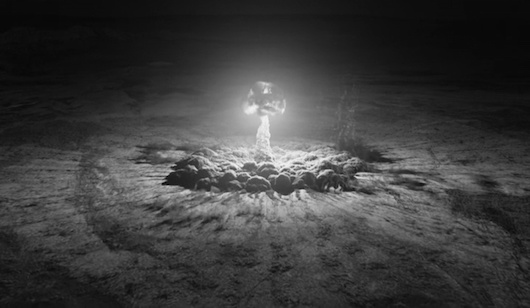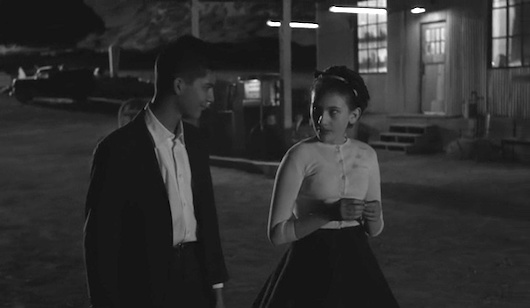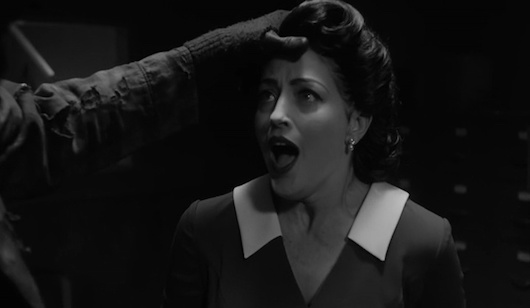 TV
TV « In Which David Lynch Becomes Both Mother And Father To Us All »
 Tuesday, June 27, 2017 at 10:00AM
Tuesday, June 27, 2017 at 10:00AM 
The Master in Disguise
by ELEANOR MORROW
Twin Peaks
creators Mark Frost & David Lynch
Showtime
The question of when evil began is an easy one, but when did evil resume, this time for good? June 25, 2017. David Lynch answered that query in this year of our Lord, and people became very angry and afraid when he told them. Reactions on messageboards to Lynch's statement were diverse, but most boiled down to a central question in response to Lynch's hour-long answer: What did I just watch?
Not to single out one particular messageboard post, but it went something like this: Twin Peaks didn't make me feel anything. Well, when I watched a mosquito frog march into a young girl's mouth in glorious black and white, I am pretty sure I felt something, but I can recognize that others might enjoy things that I do not. I have never particularly enjoyed Hannukah, dalmatians or the game of hearts. I mean, it sort of plays itself?

Evil, says Lynch, dates back to 1945. I was not around then, and neither were my parents, so I will have to take his word for it. Soon no one living will remember World War II, and soon enough no one living will remember facebook. I can't honestly tell you which memory will last longer, and whether it will be in human years, or dog. What I do know is that Mr. Lynch's aesthetic sense knows no peer – imagine if he was actively working to display an actuality of pure beauty, rather than endeavoring to describe the various stains human beings have impinged upon their world!
I was at the movies a lot last week, since it is so warm here. Before all of the screenings the theater plays the trailer for Al Gore's new movie about the environment. There are some great scenes when they make it look like Al is negotiating between nations to solve the pressing problem of how warm it is himself. The amount of self-aggrandizement is staggering. At one point during the trailer Al verbally spanks people for suggesting we could move to Mars if Earth does not work out as a habitat. Al, it was just an idea.

Well, in 1945, humans unleashed even more serious destruction upon the planet and the third most populous species of land vertebrates this world has to offer. (Ranking slightly ahead of humanity is the brown rat and common chicken.) Evil was invented to eliminate evil, but then who eliminates the second, peripheral evil? David Lynch.
Lynch was always a troll of sorts. Even watching his most sincere movies is like staring at a David Hockney painting, where everything worthwhile in it is held below the surface of things. Yet what was so marvelous about this episode of Twin Peaks, the most perfect episode of television that has ever aired, or at least the most perfect episode of television that has ever aired on Showtime, was that it was relatively sincere.

Halfway through the events of the episde, when Trent Reznor and Atticus Ross took the stage to perform "She's Gone Away", we got a sense that Lynch was interested in this idea, and that he was uncovering it as a child unwraps a particularly precious candy bar. Most people did not take Twin Peaks very seriously, they watched it casually to see what weird thing would happen to some familiar, quirky characters in a place we all knew. But Lynch decided this whole revival could go one of two ways: he could make a stupid, jokey imitation of what people liked about the small town aesthetic, or he could go the absolute other way into expanding a mythology to describe why people do awful things to each other, and themselves.
This is the much more courageous artistic statement. If it is not always the most traditionally satisfying, we should look deep within ourselves to think: should television really be something that makes us feel good or bad, or could it possibly make us think why we might hold these emotions in the first place?
Eleanor Morrow is the senior contributor to This Recording.































Reader Comments